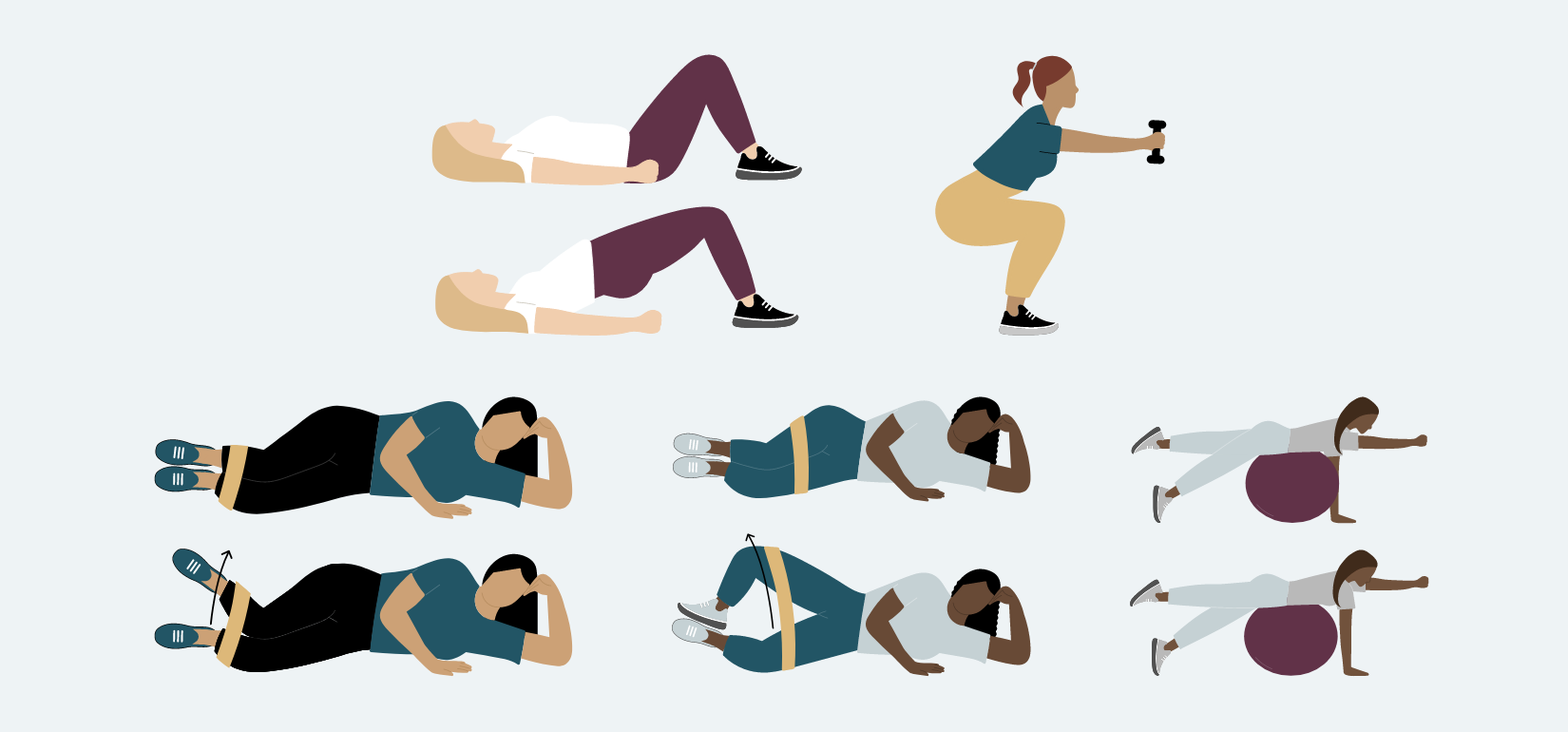You’ve probably heard the old adage, “What you don’t know can’t hurt you.” While this may sound nice, what you don’t know really can hurt you.
There are a lot of myths and misinformation around the topic of incontinence (the loss of bladder or bowel control), and these myths can drastically affect an individual’s outlook on their incontinence and treatment. Incontinence doesn’t have to keep you from living the life you desire!
If you’ve previously bought into any of these incontinence myths, we hope this post can provide you with some clarity.
Facts & Myths
Put your knowledge to the test and educate yourself about incontinence with these facts and myths!
1. Only Seniors Have Incontinence
Check Your Eligibility
In 2 easy steps!
Discover the bladder control supplies covered by your Medicaid plan.
This is a myth! Incontinence can affect both men and women of all ages, although it is most common in older females. Incontinence is associated with a variety of health events and conditions, such as:
- Childbirth
- Weakened pelvic floor muscles.
- Conditions, such as autism and ADHD.
- Diabetes
- Epilepsy
- Spinal cord injuries.
- Surgeries
- Urinary tract infections (UTIs).
- Prostate issues.
- And many more!
Although we tend to hear more about incontinence in older people, incontinence is very common in people of all ages.
2. People Don’t Like Asking for Help With Incontinence
This is a fact! Incontinence has the potential to be an embarrassing condition, and many people would rather try to cover it up instead of asking their friends, family, or healthcare provider for help.
54% of seniors admit that if they had incontinence they would feel too embarrassed to discuss it with family or friends. However, it is very important to not leave incontinence symptoms untreated. Hiding incontinence symptoms can cause high levels of stress and anxiety for the individual, which can cause the symptoms to worsen over time. If you believe your loved one is hiding their incontinence, we have five ways you can help.
Signs that your loved one is hiding incontinence may include:
- Stains on the furniture from accidental voiding.
- Odors caused by soiled clothing.
- Frequent changes of clothes.
- Social withdrawal or isolation.
3. Incontinence Can't Be Cured
This is a myth! It is true that in some cases, incontinence can only be managed. However, in other cases, individuals can successfully alleviate all of their symptoms depending on their age and what type of incontinence they have.
For example, after giving birth, mothers may develop stress incontinence until their bodies fully heal. Stress incontinence is characterized by experiencing leaks when performing activities such as laughing, sneezing, or working out. These activities can cause extra pressure to be placed on the bladder. This type of incontinence, in the context of childbirth, typically only lasts for a few months and can be improved with pelvic floor exercises.
Other incontinence treatments that can alleviate symptoms include:
- Various types of surgeries.
- Promptly treating UTIs.
- Strengthening the pelvic floor.
- Taking medication.
4. Incontinence Is Very Common
Another fact! Incontinence currently affects approximately 13 million Americans and over 50% of all seniors in assisted care facilities. If you have incontinence, you’re not alone! Incontinence of all types is very common, however, it isn’t often discussed.
5. Incontinence Is a Normal Part of Aging
This may be surprising, but this is a myth. Your chance of developing incontinence does increase with age, but it should not be accepted as a normal part of aging because incontinence often occurs as a symptom of another condition.
For example, Parkinson’s disease, frequent urinary tract infections (UTIs), multiple sclerosis (MS), and more can contribute to increasing pressure on the bladder and bowels, leading to incontinence.
Due to the range of conditions that can cause incontinence, it is important to speak with your healthcare provider as soon as symptoms of incontinence begin to rule out underlying health conditions. With proper treatment and healthy lifestyle changes, you can greatly reduce symptoms and discomfort.
6. Constipation Makes Incontinence Worse
This is a fact for both children and adults. Constipation can lead to increased pressure on the bladder, reducing the amount of urine it can hold. The straining that constipation causes can also weaken the pelvic floor muscles, reducing the bladder’s ability to hold urine or prevent leaks.
This is a great example of how healthier choices can reduce incontinence symptoms. By switching out fried foods and sweet treats for whole grains, fruits, and veggies, you can add additional fiber to your diet that can prevent constipation. Lightly exercising for about 30 minutes three to four times a week can also help prevent constipation.
7. Kegels Are Only For Women
This is a huge myth! Kegel exercises, or pelvic floor muscle exercises, are most commonly associated with women, but Kegels can help men, too. By strengthening the pelvic floor muscles, men are better equipped to be able to control their urination. Pelvic floor health is crucial when dealing with incontinence, but it is also a very important aspect of overall well-being for both men and women.
8. Drinking Less Prevents Accidents
This is also a myth. Many people believe that if they limit the amount of water they consume, they can decrease their chances of having an accident. However, not drinking enough water can actually make incontinence symptoms worse! Drinking less fluid can cause urine to become more concentrated, leading to bladder irritation, pain, and the frequent urge to urinate.
Instead of limiting fluid intake, try using the restroom on a regular schedule before leaving your home or going to sleep. It is also good practice to visit the restroom after meals and when you first arrive at work, school, or social gatherings. While you shouldn’t limit the amount of water you drink, certain beverages such as coffee, alcohol, and soda can irritate the bladder and cause incontinence symptoms to worsen.
How to Get Free Incontinence Products
If you manage incontinence and have an underlying condition, you may be eligible to receive your incontinence products at no cost through your insurance provider.
Aeroflow Urology makes the process of checking your eligibility a breeze with our easy, 2-step form. We take care of all of the paperwork, so you can focus on more important things. If approved, your continence care products will be shipped straight to your door each month in discreet packaging, eliminating extra trips to the store.
Information provided on the Aeroflow Urology blog is not intended as a substitute to medical advice or care from a healthcare professional. Aeroflow recommends consulting your healthcare provider if you are experiencing medical issues relating to incontinence.







